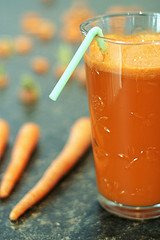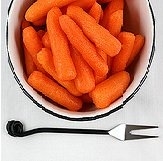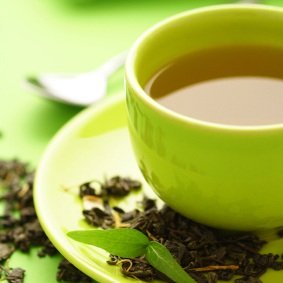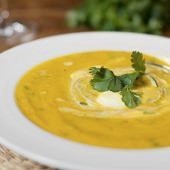Carrot Nutrition Facts
and Health Benefits
All about carrot nutrition facts, health benefits of carrots and carrot juice, how to make carrot juice.
The carrot is a very nutritious root vegetable, generally orange in color, given its high beta-carotene content, but also available in other colors such as white and purple.
Carrots are very low in calories, a 100 gram or 3.5 oz serving contains just 35 calories if eaten raw or 41 calories when cooked. They contain no cholesterol so are perfect as part of your weight loss diet.
Carrots contain more vitamin A than any other vegetable we have researched, containing 2 to 3 times our recommended daily intake (RDI) per serving, depending on whether they are eaten raw or cooked. They also provide a good source of vitamin K, providing 17% of our RDI. The vitamin C levels of carrots are reduced when they are cooked as it’s a soluble vitamin; however, if eaten raw, they will give us 10% of the recommended daily intake.
The American Institute of Cancer have said that regular consumption of carrots may inhibit the growth of some cancers and help to protect against cataracts and premature aging. A Dutch study said that carrots were believed to protect against heart disease by slowing down the process which hardens our arteries, thanks to the flavonoid antioxidants they contain.
Carrots contain calcium pectate, which is a pectin fiber. Regular
consumption will reduce our blood cholesterol levels as it bonds the
bile acids to stop the creation of cholesterol in the liver. This same
fiber is also thought to help suppress our appetite.
Included
below the nutrition table is a recipe to make carrot juice, although
bear in mind the process removes a lot of the fibrous pulp.
To
get the most benefits of carrots eat them raw or drink carrot juice. If
you eat raw carrots you get only 1% of beta carotene (source of vitamin
A) available, but when drinking a glass of carrot juice our body absorbs
100% of it. Two glasses of carrot juice a day can boost your immunity
system by 70%. Freshly made carrot juice is much better than bottled
carrot juice.

Carrot Nutrition Information
| Carrot nutritional value per 100 g (3.5 oz) Scientific Name: Daucus carota |
||
|---|---|---|
| Proximates: | ||
| Carrots Nutrients | Carrots, raw | Carrots, cooked, boiled, drained, without salt |
| Water | 88.29 g | 90.17 g |
| Energy | 173 kJ (41 kcal) | 147 kJ (35 kcal) |
| Protein | 0.93 g | 0.76 g |
| Carbohydrates | 9.58 g | 8.22 g |
| Total Fat: | 0.24 g | 0.18 g |
| Fiber | 3.0 g | 3.0 g |
| Sugars, total | 4.54 g | 3.45 g |
| Cholesterol | 0 mg | 0 g |
| Minerals: | ||
| Calcium, Ca | 33 mg (3%) | 30 mg (3%) |
| Iron, Fe | 0.30 mg (1.6%) | 0.34 mg (1.8%) |
| Magnesium, Mg | 12 mg (3%) | 10 mg (2.5%) |
| Phosphorus, P | 35 mg (3.5%) | 30 mg (3%) |
| Potassium, K | 320 mg (7%) | 235 mg (5%) |
| Sodium, Na | 69 mg (3%) | 58 mg (2.5%) |
| Zinc, Zn | 0.24 mg (1.6%) | 0.20 mg (1.3%) |
| Copper, Cu | 0.045 mg (2%) | 0.017 mg (1%) |
| Manganese, Mn | 0.143 mg (7%) | 0.155 mg (8%) |
| Selenium, Se | 0.1 mcg (0.1%) | 0.7 mcg (1%) |
| Vitamins: | ||
| Vitamin C | 5.9 mg (10%) | 3.6 mg (6%) |
| Thiamine (Vit. B1) | 0.066 mg (4.4%) | 0.066 mg (4.4%) |
| Riboflavin (Vit. B2) | 0.058 mg (3.4%) | 0.044 mg (2.6%) |
| Niacin (Vit. B3) | 0.983 mg (5%) | 0.645 mg (3.2%) |
| Pantothenic acid (B5) | 0.273 mg (2.7%) | 0.232 mg (2.3%) |
| Vitamin B6 | 0.138 mg (7%) | 0.153 mg (8%) |
| Folate (Vit. B9) | 19 mcg (5%) | 14 mcg (3.5%) |
| Vitamin A | 12036 IU (241%) | 17202 IU (344%) |
| Vitamin E | 0.66 mg (3.3%) | 1.03 mg (5%) |
| Vitamin K | 13.2 mcg (17%) | 13.7 mcg (17%) |
| Percentages are relative to US Recommended Daily Intake (RDI) for adults. |
||
How to Make Carrot Juice,
Carrot Juice Recipe

How to make carrot juice at home.
1 pound of carrots will give you an 8 oz. glass of juice.
Wash carrots, cut off the ends, if carrots are not organic you might want to peel them. During washing you can leave carrots in water for 5 – 10 min, this will get them moist.
To make carrot juice you will need a juicer. Follow the instructions for your juicer model. Push carrots through the machine and catch the juice in a cup as directed.
Drink the juice immediately as it tastes best when it is fresh.
Author: Lana Soko
You Might Also Like:
Want to Learn More?
Like This Page?
|
Share This Page:
|







